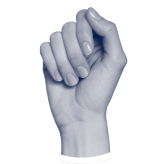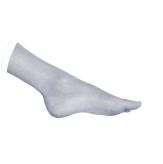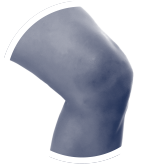
When back pain flares, it can be crippling and it’s often difficult to know what to do to help
Here are some of the common back pain myths you shouldn’t believe and what to do instead.
1) Don’t Move
The crippling pain that people often experience with an episode of back pain will only be alleviated by lying down flat.
This may help in the very acute (early stage) of back pain, but not chronic (recurrent or longer standing) back pain – rest for more than 1-2 days may actually be detrimental to the recovery. If you lie in bed for long periods you are likely to suffer from joint stiffness and a reduction in muscle strength. It is also not good for your mindset or mental wellbeing.
It’s important to keep moving. Walking is an excellent form of activity for low back pain. It is also useful to seek advice from a Physiotherapist who can guide you through some gentle mobility and strengthening exercises.
2) Back Pain Means My Back Is Damaged
We normally associate acute pain with severe damage and injury. However, with back pain, it does not generally reflective any serious damage.
While the pain can be very debilitating, it is likely a mild sprain or strain of the back muscles or ligaments. For those who have back pain lasting more than 6 weeks, you should see you GP or healthcare professional.
3) I Should Avoid Exercise – Especially Weight Training
After an episode of back pain, you are likely to feel very protective about your back and avoid anything that may cause the pain to return, such as exercise. However, it is universally agreed within the medical community that back pain should be treated conservatively with exercise and rehabilitation.
While weight training needs to be done with care, it is not something you should rule out, especially if you are someone who is used to weight training regularly.
Ensure that your technique is spot on by seeking help from a weigh training specialist. Start off slow and gradually increase resistance.
4) Sitting Upright Is Better For Your Back
Posture is complicated; while there are certainly some postures which are better for your back than others, the most important thing to remember is that staying in any position for too long is bad for your back.
Sitting up straight is a common posture that people try to adhere to, but sitting rigidly upright, overextending your back places stress and strain on your lower back, which can lead to pain and discomfort.
The best practice is to not stay still for too long. If you do a job that requires you to sit for long periods, try to move in your chair, change postures and positions, and make sure you get up stretch and walk around every 40-60 mins. Also, try and move your neck, arms and legs and stretch regularly while sitting down.
5) Scans Will Reveal Why My Back is in Pain
X-Rays and MRI scans are mostly unhelpful when dealing with back pain. Most scan results either show nothing out of the ordinary, or they show elements of ageing within the spine, that is likely unrelated to your pain.
Often reports use terminology like joint degeneration which can be alarming! However this usually related to normal signs of ageing within the spine. In most cases scans should give you peace of mind that it is nothing serious to worry about.
The only time that scans are really necessary, is if your specialist feels it is important rule out serious pathology like fractures, stenosis or cancer.
If you have pain that is getting worse over multiple weeks and not settling with physiotherapy, then it is important to seek further advice from a spinal specialist who will be able to guide you on the best course of action.
6) Back Pain Is Imaginary
Even though most back pain scans come back normal, pain still exists. This doesn’t mean that the problem isn’t there or that it is not genuine. Back pain can be excruciating and affect many aspects of your daily life, including disrupting your sleep and stopping you from doing normal activities.
It’s important to remember that most episodes of back pain settle down within 6-8 weeks and are caused by something mild like an awkward twist or bend which irritates a muscle, joint or nerve.
Sometimes back pain can become chronic which means that you have had it for a prolonged period of time (usually greater than 6 weeks or multiple episodes). Chronic back pain can be quite hard to treat, even though again it is not usually caused by any serious pathology.
When joints and nerves become irritated in the back, they are very sensitive and can easy be flared up. Make sure to get professional help to manage your back pain before it starts to affect your quality of life.
If you are suffering from an episode of back pain that isn’t settling then don’t delay seeking advice from one of our expert Spinal Specialists.









